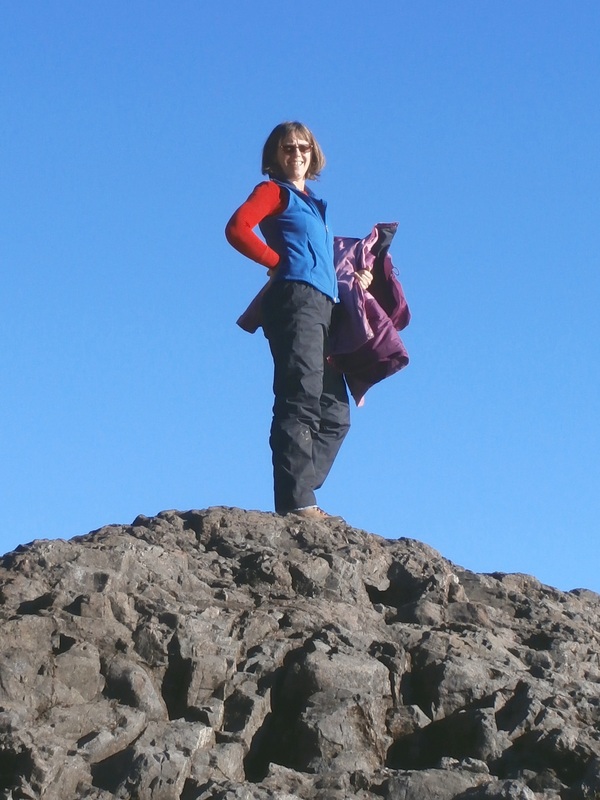|
A Reflection on Mark 6:14-29 for the community at St. David of Wales Episcopal Church. July 11, 2021.
What a celebration the season of Pentecost has been for our church community with the return of in-person worship. Even masked and humming our hymns, I know we’re all grateful to see more than a handful of humans after so many months of YouTube church. After the service last Sunday, I had the blessing of a long conversation in the parking lot with a member who spoke of the assurance that God had given her in the midst of difficult circumstances, and of God’s faithfulness in the work of grief and healing. I drove away dripping with gratitude for the ability of worship to bring us close to one another, thankful for the way gathering together on Sunday mornings provides opportunities to share with each other the stories of how we live out our faith day-to-day. In this Pentecost season of coming together, we’ve been traveling with Jesus and the disciples as they’ve too have come together, immersed in the growth of Jesus’ ministry, witnessing the crowds gathering to listen and learn, hungry for the hope and healing Jesus offers. We’ve seen religious leaders question and challenge Jesus, and the assurance with which he responds, reminding them of who we ultimately answer to. As people are converted, the countryside is abuzz. Last Sunday, we read of the disciples being sent out on their own filled with the power Jesus bestows, and we’re eagerly anticipating their return, waiting to hear about their adventures. But today, Mark interrupts his regularly scheduled message of empowerment with a horror story. When I told my prayer partner that I was going to be preaching about the beheading of John the Baptist, she immediately mentioned King Henry the VIII. At first reading, it does seem like today’s gospel passage is a script for a mini-series, a look back at political figures, like Herod, who are little more than footnotes in our history, rulers whose power and influence were fleeting. After all, it is in Jesus’ name we gather, not the in name of Herod or Caesar or Henry or any other ruler. At first glance, we can read this passage and breathe a sigh of relief, thankful that people are no longer so barbaric. Yet even a cursory glance at current day headlines leaves no doubt that not much has changed since Jesus’ time. But when I think about silencing critics, we do that all the time on social media, unfriending people left and right. And the rich and powerful elite everywhere still cling desperately to power by silencing those who speak the truth through arrest, execution, assassination, court decisions, legislation, and terror. It can be comforting to think that we’re not like Herod, after all, not one of us will ever be governing a territory or divorcing our wives to marry our brother’s wife for political gain. We aren’t going to jail a prophet whose views we otherwise find intriguing because he speaks out against the inappropriateness of our marriage. We aren’t going to be throwing an extravagant birthday party where we bribe our daughter to dance in front of an audience of inebriated men by promising her anything she wants. And we certainly aren’t going to behead the jailed prophet because we’re more concerned about not seeming weak or wishy-washy in front of our guests, than we are about the prophet’s life. We can think that we’d never be as manipulative as Herodias plotting to kill our harshest critic, or as easily manipulated as their daughter asking for something as horrifying as murder and the parading of a man’s severed head at a party. Out in the world running errands, or at home with my husband and cats, it’s easy enough to think that I'm a good person. After all, I’m never intentionally evil like the villains I see in TV shows. But when I look honestly at my own life, I can find plenty of instances over the years where I have behaved like Herod, Herodias, and the daughter, albeit on a much smaller scale. I’ve been told how my behavior has hurt others but have refused to take responsibility for my actions or change my ways out of fear and a desire to protect my self-image. I’ve manipulated others to get what I want, trying to control people’s actions, believing they had to change their behavior in situations that were uncomfortable for me, rather than changing my behavior or learning to respond to circumstances differently. I have wanted to hold onto the power and prestige I’ve had in certain roles that I was given by virtue of title, rather than by having earned genuine respect. I’ve made decisions that have gone against my own conscience in a desire to protect the status quo and preserve the semblance of peace in my life when change was needed. You can probably find some parallels in your own lives as well. For better or worse, none of us can escape acting like humans. But how do we move forward once we realize we’ve caused harm? Jesus said that “those who want to save their life will lose it, and those who lose their life for my sake, and for the sake of the gospel, will save it.” When the news of Jesus’ ministry reached Herod, Herod thought that John had been raised from the dead. Imagine for a moment what might have happened if Herod had then tried to atone for John’s death. What if Herod had gone to Jesus and talked with him? He might have become one of Jesus’ disciples. Instead, he became part of yet another execution and silencing of God. In its own way, this passage asks us to examine the worst in human behavior so that we might reorder our lives. It challenges us to give up our desire for power and control, to name the brokenness and injustice in our governments, to admit the shortcomings of our social structures that leave many in aching need, to recognize the ineffectiveness of our ego-driven efforts, and to acknowledge the pain we cause one another simply by thinking of our own welfare before we consider the welfare of others and the welfare of the earth itself. Confession, even when it’s silent, can be uncomfortable, and it’s something we rarely do outside religious circles. Even inside religious circles, confession is something that is skipped very often in my former denomination and in many others. Thankfully, we in the Episcopal church follow a worship liturgy that is relatively unchanging. Every week, whether we gather in person or virtually, we are called to repentance, we are called to turn away from the world, and to turn toward God as we stand before one another and confess our sin, both societal and personal. We bring into the light those thoughts and actions done, and those left undone. We offer those thoughts and actions of which we are aware, and those known only to God. We lay bare our need for forgiveness, and we open ourselves to Christ’s healing power and the transformation it brings. In short, we endeavor to lose our lives for the sake of the gospel in order to save them. Two thousand years after Jesus and his followers spread the good news throughout Galilee, we are still too much like Herod, yet we know he appears in the gospel as a cautionary tale, as a stark reminder of what happens when we invest all our hope in human power and authority. Two thousand years later, the reign of God has not yet come to fruition, but it is the home and hope our hearts long for. We are still listening to Jesus’ words, still being shaped by the stories he told, still remembering the lives he changed, then and now. We are still following, still stumbling, still getting up and starting over, still on the path toward the abundant life God offers to the entire human family. What an incredible gift this journey is. And what a blessing to be part of this faith community, to walk this road together, to make our way closer to Christ together.
0 Comments
Your comment will be posted after it is approved.
Leave a Reply. |
I began blogging about "This or Something Better" in 2011 when my husband and I were discerning what came next in our lives, which turned out to be relocating to Puget Sound from our Native California. My older posts can be found here.
Categories
All
Archives
September 2023
Newsletters |

